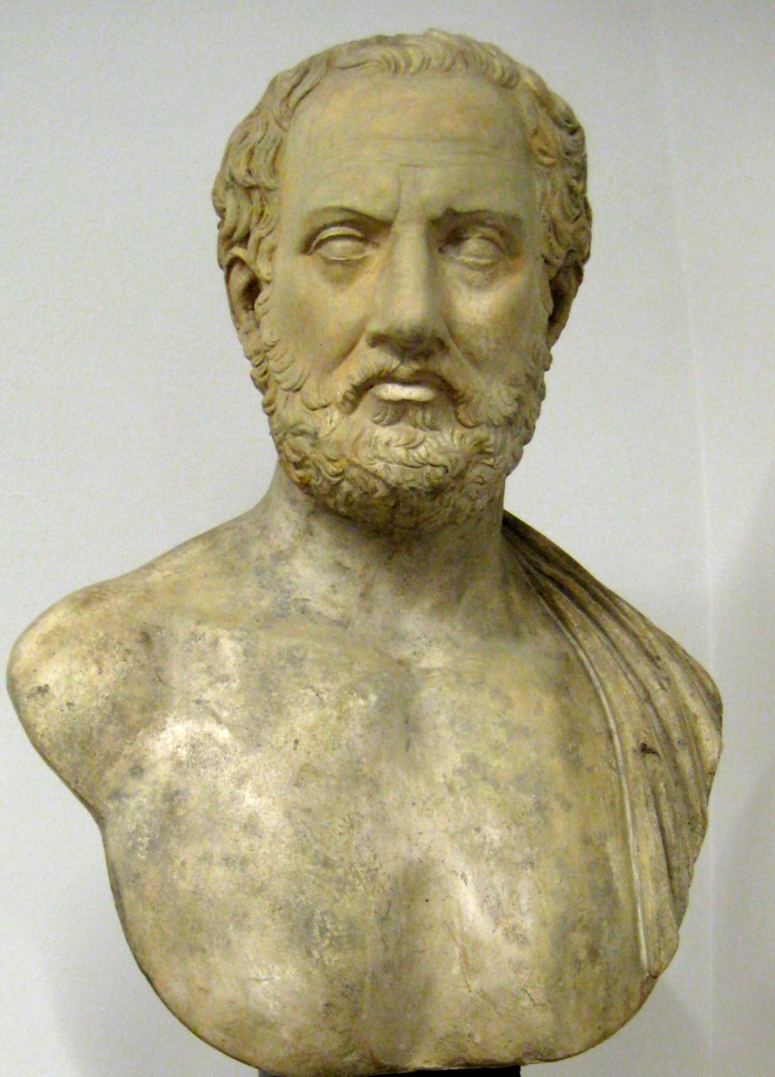„Das Geheimnis des Glücks ist die Freiheit, das Geheimnis der Freiheit aber ist der Mut.“
Peloponnesischer Krieg, 2, 43, 4 / Perikles
Original altgriech.: "τὸ εὔδαιμον τὸ ἐλεύθερον, τὸ δ' ἐλεύθερον τὸ εὔψυχον"
Peloponnesischer Krieg, Gefallenenrede des Perikles
